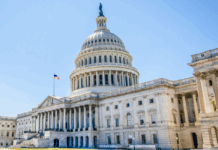Comments made by Health & Human Services (HHS) Secretary Alex Azar during the 340B Coalition Summer Meeting last week put hospitals on alert to expect greater transparency and oversight of the 340B Drug Pricing Program. Azar said more oversight is necessary to track how the program’s benefits are used to improve care for low-income and vulnerable populations.
Azar said that discounted drug purchases under the 340B drug program totaled approximately $16 billion in 2016, representing a four-fold increase since 2009. Discounted purchases also increased 30 percent between 2015 and 2016 alone. Azar went on to say that government programs can grow pretty fast, but typically they do not grow that fast, indicating a need for more oversight.
Azar’s fear is that without greater monitoring of the 340B Drug Pricing Program, hospitals and other stakeholders may use the program’s benefits for unintended purposes, such as supporting care for patients who are not considered low-income, which is a main tenet of the drug discount program.
The suggestion that more government oversight is expected for the 340B Drug Pricing Program adds to the stress already felt by health care providers as a result of the Trump Administration’s rule in late 2017 that changed the 340B payment formula for hospitals. The rule abandoned the average sales price plus six percent methodology and replaced it with the average sales price less 22.5 percent formula. The new hospital payment methodology will reduce hospital reimbursement by $1.6 billion. The American Hospital Association and several other stakeholders are currently suing HHS over the 340B drug payment cuts (click here for the latest on the lawsuit), and other industry groups are calling on HHS to abandon the reimbursement reductions.
In a private meeting with GOP House lawmakers following the 340B Coalition Summer Meeting, Azar floated the idea of standardizing the 340B drug discounts offered to providers, cutting it to 20 percent of the list price.
Several GOP members of the House Energy and Commerce health subcommittee who were present at the meeting told Azar they would vigorously oppose holding critical-access and rural hospitals to this standard, which is significantly lower than the typical 40 percent to 60 percent discount that 340B hospitals currently receive.
Azar has made it clear that HHS is committed to making changes to the 340B program as part of their comprehensive approach to lowering drug prices and reducing out-of-pocket costs. The question now is when those changes will be made.






